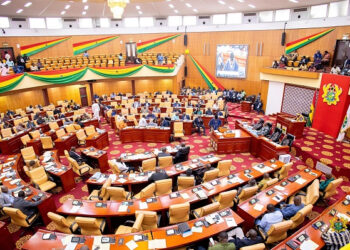OpenAI has announced that its nonprofit division will retain control over its for-profit entity, reversing an earlier plan to transition to a fully for-profit organization.
The company stated that its business arm, which has been under the nonprofit since 2019, will become a public benefit corporation (PBC). The nonprofit will remain a significant shareholder and maintain oversight of the PBC.
“OpenAI was founded as a nonprofit and is currently governed by that nonprofit,” said OpenAI Board Chairman Bret Taylor in a statement on the company’s blog. “Going forward, it will continue to be overseen and controlled by that nonprofit.”
This decision comes after consultations with civic leaders and discussions with the offices of the Attorneys General of Delaware and California.
ICYMT: Pending passport applications to migrate to chip-embedded passports in 90 days
“We appreciate both offices and look forward to continuing important conversations to ensure OpenAI can effectively pursue its mission,” Taylor added.
Originally founded as a nonprofit in 2015, OpenAI transitioned to a “capped-profit” model in 2019 while retaining its nonprofit division, which holds a controlling stake in the corporate branch. The company had argued that this conversion was essential for raising necessary capital for growth while preserving its nonprofit status and funding charitable initiatives in areas like healthcare, education, and science.
However, the proposal faced opposition, including a lawsuit from early investor Elon Musk, who claimed the company was abandoning its nonprofit mission aimed at benefiting humanity through AI research. Musk sought to halt the conversion, though a federal judge denied the request, allowing the case to proceed to a jury trial in spring 2026.
Additionally, a group of former OpenAI employees and the nonprofit Encode filed amicus briefs in support of Musk, while various organizations, including labor groups like the California Teamsters, petitioned the California Attorney General to block the conversion, alleging that OpenAI had failed to protect its charitable assets.
The stakes were high for OpenAI, which needed to finalize its for-profit conversion soon or risk losing some of the capital it has raised recently. The implications of this reversal remain uncertain.
In a letter to staff, CEO Sam Altman expressed that OpenAI may eventually require “trillions of dollars” to achieve its goal of making its services widely available. He noted that the nonprofit would become a significant shareholder in the PBC, supported by independent financial advisors, and emphasized the move toward a standard capital structure where everyone has stock. Altman also indicated plans to further discuss the details with partners, including Microsoft, and new nonprofit commissioners.
SOURCE: TECH CRUNCH


























